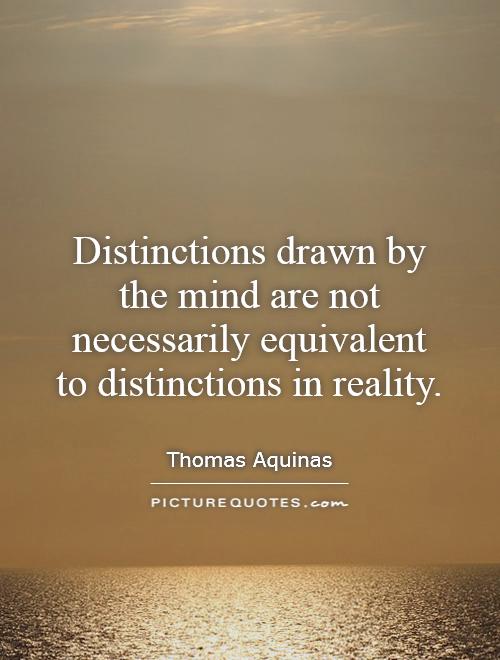Distinctions drawn by the mind are not necessarily equivalent to distinctions in reality

Distinctions drawn by the mind are not necessarily equivalent to distinctions in reality
Thomas Aquinas, a prominent theologian and philosopher of the medieval period, grappled with the idea that distinctions drawn by the mind may not always align with distinctions in reality. This concept is central to Aquinas' philosophy, as he sought to reconcile the teachings of the Catholic Church with the rationality of Aristotelian philosophy.Aquinas believed that the human mind has the capacity to understand the world around us through reason and intellect. However, he also recognized that our perceptions and interpretations of reality are not always accurate reflections of the true nature of things. This is because our minds are limited and fallible, and our understanding of the world is shaped by our own biases, experiences, and cultural influences.












 Friendship Quotes
Friendship Quotes Love Quotes
Love Quotes Life Quotes
Life Quotes Funny Quotes
Funny Quotes Motivational Quotes
Motivational Quotes Inspirational Quotes
Inspirational Quotes